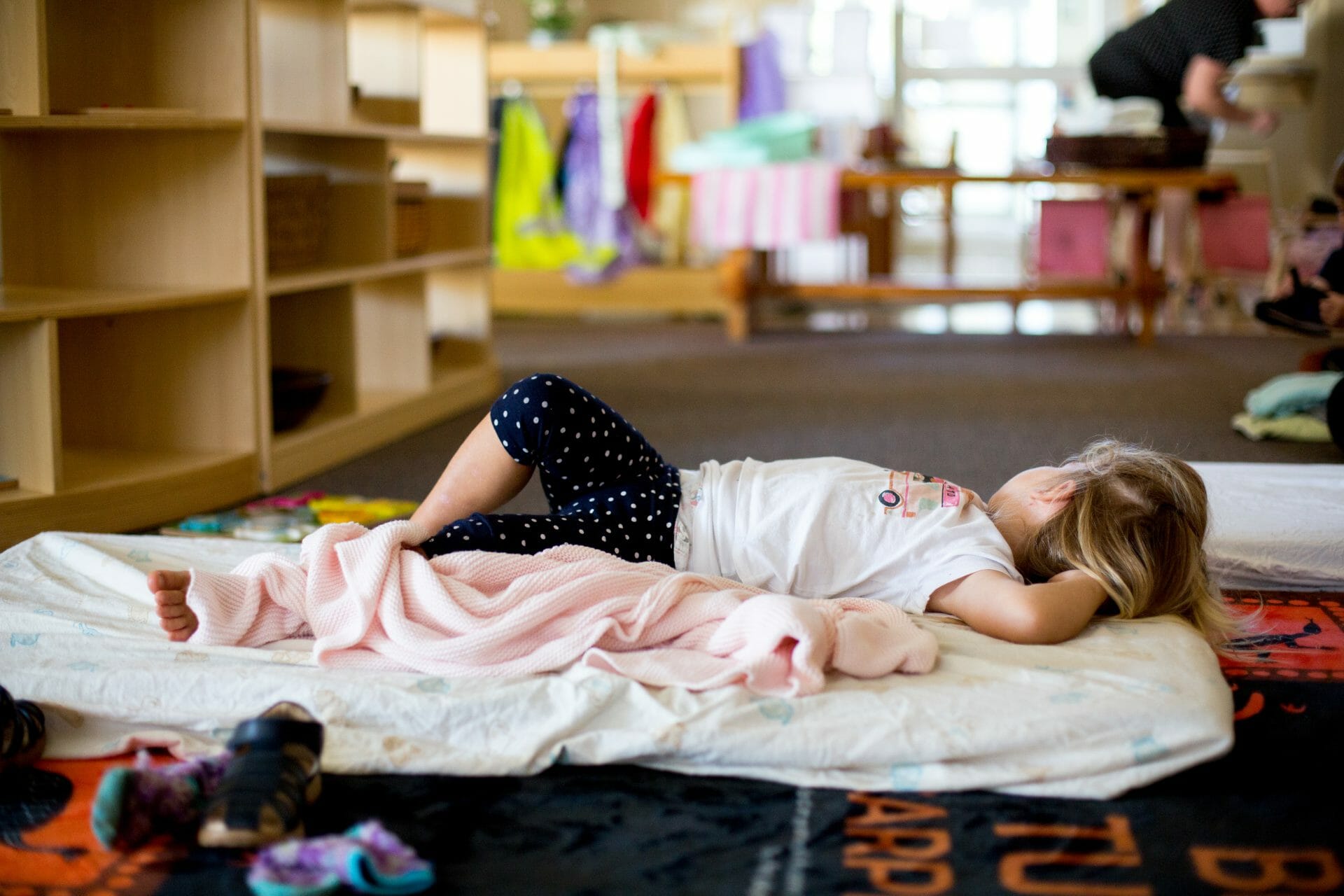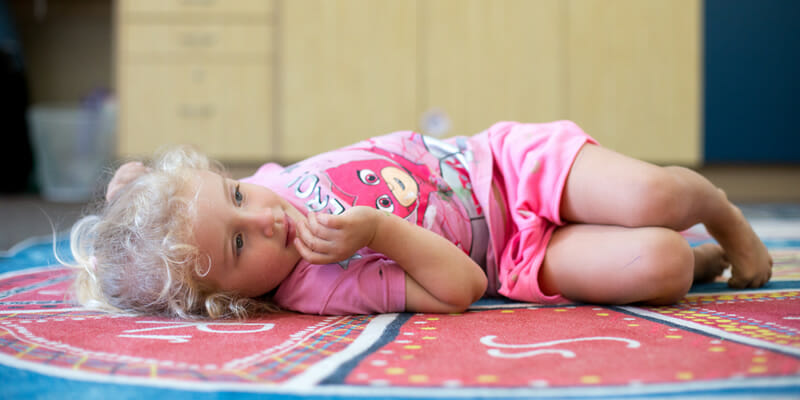
Why are sleep routines important in young children?
There are some really good reasons to ensure your child gets enough sleep and it’s not just managing the grumpies that come from lack of refreshing sleep. So it’s important to provide your child with a healthy sleep routine. The earlier, the better to form good, long-term habits.
Sleep benefits and early childhood
Good sleep patterns in early childhood can help child development, including improved attention, learning and memory, emotional well-being and physical health.
Sleep deprivation
If children don’t get enough sleep, they can suffer serious health conditions such as obesity, depression, anxiety, lowered immune systems and more. Not having enough sleep can also impact a child’s social development with their friends. Behavioural problems and reasoning can be distorted, causing further problems.
Tips for sleep routines
- Make sleep a priority for the entire family.
- Get lots of exercise and fresh air during the daytime. Take your child to the park or the beach – make it fun!
- Stick to a daily routine. Good sleep hygiene includes going to bed at the same time, whether it’s for daytime naps or at bedtime, and waking at the same time every day.
- Create healthy sleep time routines such as reading a book before bed, brushing hair and teeth, dimmed lighting, and soothing music.
- Keep your child away from bright screens by limiting time on their devices and TV etc, at least an hour before bedtime.
- Be mindful of how late you let your child eat before bed – being hungry can prevent your child from sleeping as much as eating too much before bedtime. This includes babies being fed solids to help them sleep through the night – this can give them tummy ache if they are not ready for solids yet (usually before six months old).
- Avoid sugary foods or caffeinated drinks as these aren’t conducive to a good night’s sleep.

St Joseph’s Family Services Programs
At our centres, we work together with families to ensure your baby’s/child’s home and care sleep routines are consistent and followed whilst they are with us.
All Early Childhood services must have sleep and rest policies in place. This includes carefully checking and documenting your sleeping baby/child every 10 minutes for breathing, movement and skin colour.
Sleep hygiene is important, and we try to ensure babies’ sheets are well-fitted and encourage the use of baby sleep bags/safe bedding options to reduce the risk of SIDS. We keep the rooms at a comfortable temperature using fans and air conditioners.
With newborns and young babies, our 0-2 age group educators treat all our babies’, and toddlers’ sleep needs differently. With newborns and young babies, in particular, they may not form proper sleep routines for a few months as they don’t know the difference between night and day for a while. We try to follow their tired signs and subtle cues that they are tired, more than just following a clock.
Daily rest time for children is to help them learn that for good mental health and well-being, they need some downtime to rest and get ready for more play later in the day. This may mean incorporating Yoga into their day, including calming stretches, lying down listening to stories with calming music or engaging in quieter reflection times and quiet activities. Many children have a special cuddly toy or dummy that is part of their routine and helps them settle themselves to sleep. We also make sure our children get lots of natural sunlight during the day as this helps improve their quality of sleep.
As children prepare for school in our older age group rooms, the more formal sleep time is replaced with a shorter rest, reflection and relaxation time. This might include the use of ‘quiet activity boxes’ for older children, packed with quiet experiences that each child can do from a mat or table, for a short period of time, instead of sleep or Yoga. Calming stretches might also be used instead of lying down.
We use ‘sleep plans’ so each family can let us know their child’s unique sleep and rest needs (sometimes when children sleep for extended periods of time, that can mean they are up until 10pm, and no parent wants that, so we work together with families to cater to each child’s sleep and rest requirements).
Sleep routines are essential for everyone, not just children. Although establishing good bedtime routines for children can provide them with long-term health benefits, they can provide lots of health benefits for the rest of the family too.
For more information, please contact us.







[…] To help your child with healthy sleep and good routines, check out our article, ‘Why are sleep routines important in young children’. […]